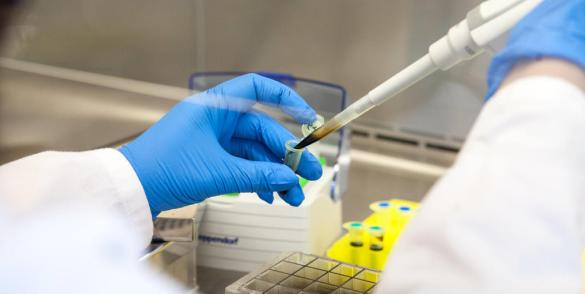
Environmental footprint
To consolidate TotalEnergies's commitment as a responsible player, the R&D teams develop innovations.
TotalEnergies’ ambition is to become the responsible energy major by providing cleaner and more readily accessible energy to as many people as possible. The CSTJF teams, particularly those of the Research & Development hub, are mobilized to meet these challenges. Climate issues are fully integrated into our strategy.
The energy transition is well underway, but the world still uses fossil fuels to meet 81% of its energy needs. Keeping global warming well below 2°C, in line with the Paris Agreement, requires that we drastically reduce consumption of fossil fuels (coal, oil, gas) and make the world energy system evolve by building the new low-carbon energy system at a much faster pace. Our collective challenge – which became evident in 2022 – is to reconcile the energy transition with the need for energy security and concerns over its cost. When the supply of oil or natural gas is restricted while demand continues to rise the social impact is immediate and very high, due to the resulting increase in energy prices and insecurity of supply.
To meet the challenge of the energy transition and still ensure that reliable energy is available in the short term at the lowest possible cost, the world needs to invest in two energy systems simultaneously so as to: ensure the current system continues to operate responsibly, and at the same time speed efforts to build a new system centered on low-carbon energies: renewable electricity, biofuels and biogas, clean hydrogen and synthetic fuels, CCS solutions to offset residual fossil-fuel emissions. Two other levers will also deliver immediate results: replacing coal in energy use whenever possible, and investing heavily to improve energy efficiency.
That, in a nutshell, is TotalEnergies’ strategy: to continue providing the energy the world needs now, notably natural gas to replace coal, while responsibly and sustainably accelerating the transition to low carbon energy solutions. This is how, in concrete terms, we support the goals of the Paris Agreement, which calls for a reduction in greenhouse gas emissions in the context of sustainable development and the fight against poverty, and which aims to keep the increase in average global temperatures well below 2°C compared to pre-industrial levels.
For more information: Check out the Sustainability & Climate 2023 Progress Report
The environment is the focus of several research projects at the CSTJF and the PERL. Every day, our experts seek to develop technological solutions that are innovative, efficient and cost-effective. For this purpose, they can count on the strong commitment of the R&D teams whose objective is to deliver:
Part of this work is carried out at the Platform for Environmental Research in Lacq (PERL). The research center works on topics of major importance for the Group. It houses three hubs of expertise: managing the environmental footprint of our activities, the physics and chemistry of interfaces and gas separation and treatment.
The PERL carries out its work with national players, such as the University of Pau et des Pays de l’Adour, the University Pierre et Marie Curie and the ENS Lyon, and with global partners like Polytechnique Montréal, an engineering university in Canada.
